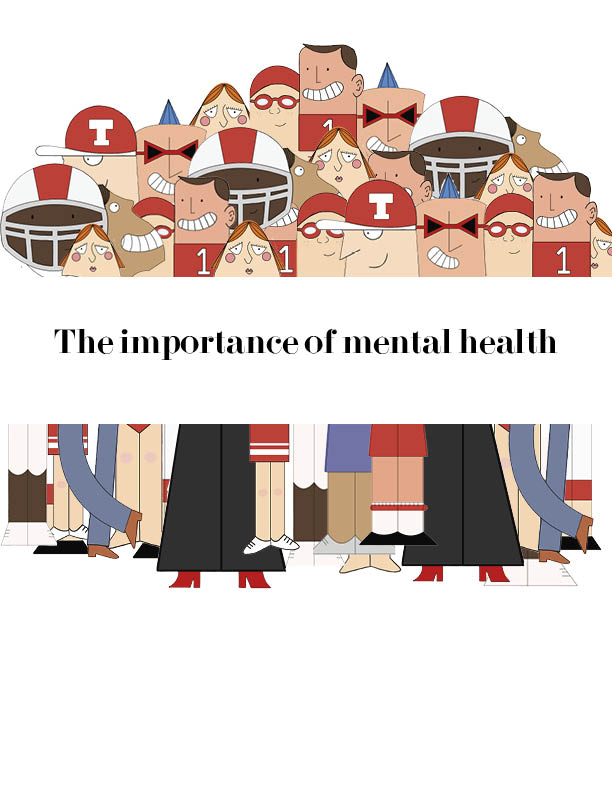The importance of mental health
December 14, 2022
Teen mental health is not an unknown subject. The issue has been talked about in movies, shows, music, etc. With this, the teens of today have a natural tendency to express their experiences with mental health and illness. The conversation is often relatable amongst teenagers, and while there can be growth in bonding, many have remarked on the fact that in today’s generation, poor mental health is becoming too frequent.
In a small study conducted with teens from Tomball High School, when asked how long they have struggled with mental health nearly 46% of the surveyed answered since middle school. The second most selected answer at 27.3% was since elementary school. Many also elaborated that the increasing pressure derived from school and family has been the biggest contributor to poor mental health.
There’s no arguing that mental health is one of the most well-known and talked about issues, yet still people find themselves feeling isolated in their struggles. Despite the many individuals that suffer from mental health issues, it’s still considered a taboo topic for most. It’s pretty common to see jokes being made on social media regarding one’s mental state, but once real stories are shared, people are told to stop putting their trauma on the internet.
“I’ve suffered from anxiety since I was eight years old. I used to cry to my mom, wishing I was normal and wondering if others struggled as I did. I had never heard anyone talk about mental health before, so I thought nobody understood what exactly it was that I was going through. I struggled silently with my anxiety for years, always thinking that something was wrong with me. The first time I had ever heard someone else talk about their experience with mental illness, was on YouTube.”
The creation of social media has given people platforms that allow them to express themselves, creating a way for millions to connect and bond over shared experiences. While social media does provide access to education on mental health, it is important to remember that this is not entirely a solution. It is best to not self diagnose when dealing with mental issues, especially through the use of social media or online tools, as it can be unreliable.
When struggling, please reach out to professional resources. Counseling and therapy can provide ways to cope with and learn more on personal mental health. The school offers campus counselors and the new campus mental health specialist, Mary-Margaret Bollatto, who are available to help all students. There are more resources at the district level as needed.
People should not be made to feel worse because they not only have to experience these difficult issues, but they also have to go through them alone. With mental illness being as common as it is, it is time that we as a society must normalize the conversation.
Hotlines that help with crises such as suicidal thoughts are an easy way to confidentially get the help needed. Here are commonly used crisis lines and a list of available resources through the school district.
Common hotlines:
– National Suicide and Crisis Lifeline 988
– National Suicide and Crisis Lifeline 988
– Crisis Text Line Text HOME to 741741
– Child Help National Child Abuse Hotline (800) 422 – 4453
TISD Resources and Mental Health Partnerships:
– Mindful Transformations Counseling Center (832) 843-7629
– Clearhope Counseling Services (281) 937-2977
– Campus counselors and district resources as needed















